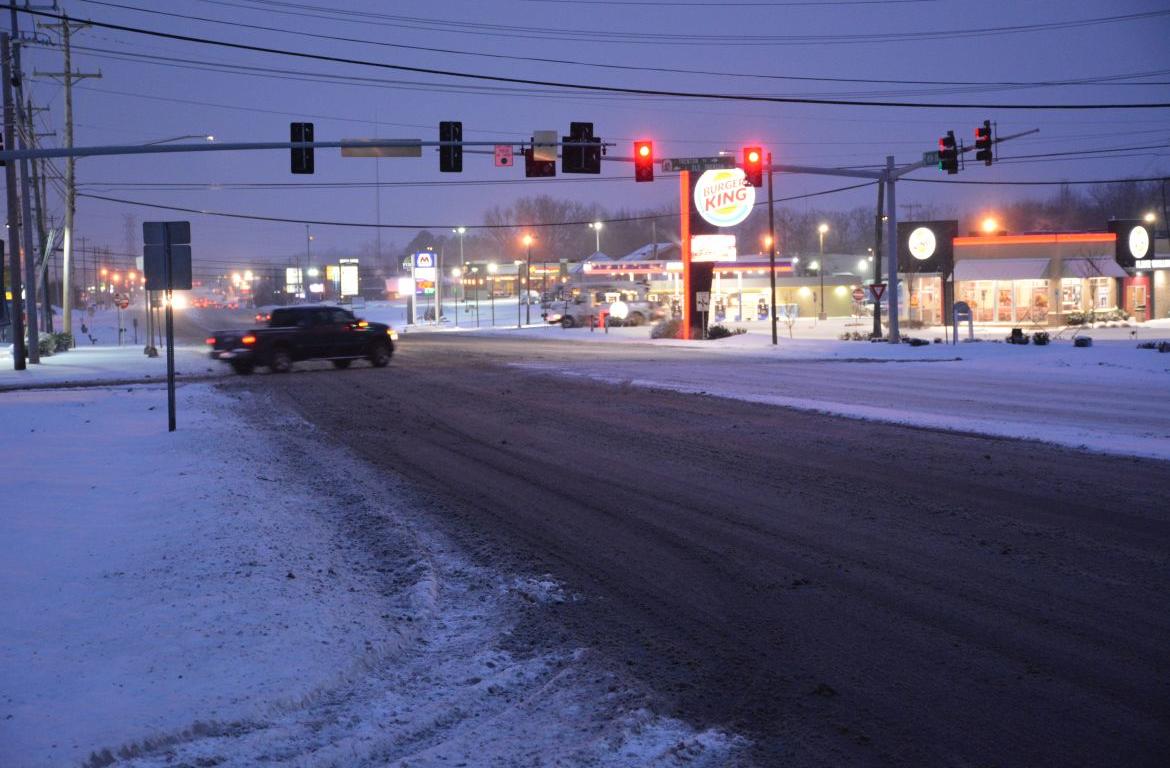CLARKSVILLE, Tenn (CLARKSVILLENOW) – With the Monday night forecast calling for a possibility of snow, ice and freezing rain, many Tennessee drivers might be feeling anxious about being out on the road.
Meteorologist Sam Shamburger said that Clarksville could see anywhere between a light dusting and a quarter-inch of snow coverage. Forecasters have predicted that snow could come as early as 6 p.m.
As drivers prepare for their Tuesday morning commute, here are some tips to stay safe on the road”
- Be Prepared: Before leaving the house, make sure you know the condition of your intended travel route. Monitor local news and radio.
- Clear windows and mirrors: Before leaving the driveway, make sure that all fields of vision are completely clear. Snow and ice can create additional blind spots and leave one vulnerable to accidents.
- Leave Early: Being in a hurry can cause one to take extra risk. Allow for more travel time than usual to adapt to traffic and road closures. Assume travel time will be five times longer than normal.
- Increase distance between vehicles: It takes much longer to stop on a road covered in snow and ice. Give yourself room to slow down.
- Be wary of bridges and overpasses freeze over faster than other roadways, and often stay frozen for longer. The same is true for peaks, valleys and shady areas.
- Avoid using cruise control:
- Approach intersections slowly: Many accidents are caused by vehicles sliding into the path of traffic at intersections. As with distance between vehicles, allow yourself plenty of time to stop.
- Signal all lane changes and turns: Make full use of blinkers in winter driving conditions so that other drivers have time to react. Also, make sure brake lights and fog lights are fully functional.
Should you get in an accident, or become stranded:
- Have a full tank of gas: In the event of a collision or being stranded, it can take emergency personnel longer to respond. having enough fuel ensures the heat can stay on while you wait.
- Let someone know where you are going: Letting someone know to expect you ensures that, should you become hurt or stranded, someone will be looking for you in a timely manner.
- Keep essentials in your vehicle: Useful items to keep in one’s vehicle include a cell phone charger, a blanket, a flashlight, jumper cables as well as non-perishable food and water.
- Be patient: Bad weather can limit the capabilities of police and emergency responders. Winter weather also leads to an increase in requests.
Furthermore, Tennessee ‘Move Over’ laws require that vehicles slow down and move out of adjacent lanes of traffic when passing emergency vehicles with flashing lights if possible to do so safely. Vehicles included in this law are police vehicles, ambulances, fire rescue vehicles, highway work vehicles and vehicle recovery equipment (tow trucks).


